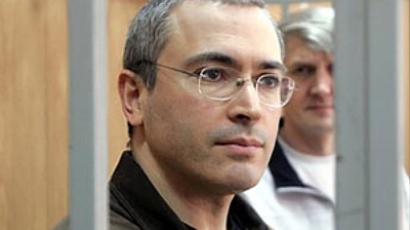One year without gambling in Moscow – the problem remains
A year on since the ban on gambling came into effect in Russia, there is a growing disappointment that the business is still prospering.
When Vladimir Putin described the practice as worse than alcoholism and passed a law banning it, many thought it was game over.
A year on and already there are calls for the law to be revised, with many people feeling there are loopholes which are being exploited and that the ban has simply driven gambling underground.
“It’s 12 months since the law came into force,” Maksim Rudnev, an anti-gambling activist of the Young Guard of United Russia, told RT at the rally staged by the organization.“There are many businesses which do not wish to comply with the rules imposed by the law – they’re cheating, breaking the rules of the game. And today we are picketing one of those businesses.”
The ban restricted gambling to four remote areas of Russia – but a lack of infrastructure and investment has meant most of the areas remain remote plots of land. While in Moscow, experts say, it seems it’s business as usual.
“Slot machines businesses were shut down 12 months ago,” said Olga Golubeva, executive secretary of the Moscow Government’s Interdepartmental Commission for Gambling Business. “Regrettably, the majority of them were replaced with these so-called ‘lottery machines.’ “
There is no law defining the requirements of the lottery equipment or lottery software. The business owners are able to obtain certificates confirming that their old gambling equipment is, in fact, lottery equipment. And courts are unable to overrule what is said on such certificates.
It’s not just the lottery machines that are causing concern. Gambling has gone underground in Moscow and although officials have closed down some of the illegal games, many say corruption among law enforcement officials is the reason for their continued operation.
“I have been gambling for about ten years,” said an anonymous gambler. “Since the ban’s come into force nothings changed fundamentally and people know where to go.”
RT’s crew was recently watching a gambling club for about an hour. While RT’s reporter was interviewing someone, several people knocked and then entered, so there was a chance to try to speak to the management, but they refused.
Within minutes they’d switched off the strip lights that had been flashing around the outside of the club and refused entry to other people who later arrived.
“Nothing’s actually changed,” the anonymous gambler said. “It’s an addiction – fun, exciting and fast but then, Snap! – you’re broke. I would at times, gamble away my entire salary. But you always want to play, always want another go at it.”
Arthur Voskanyan, head of a Russian-based company which organizes poker trips abroad, says the Russian government should rethink the law, adding that “it is just a business,” and if it were legal, “the government would have more money.”
While the rules might have changed, many, it seems, have decided to accept the higher stakes and simply play on.













